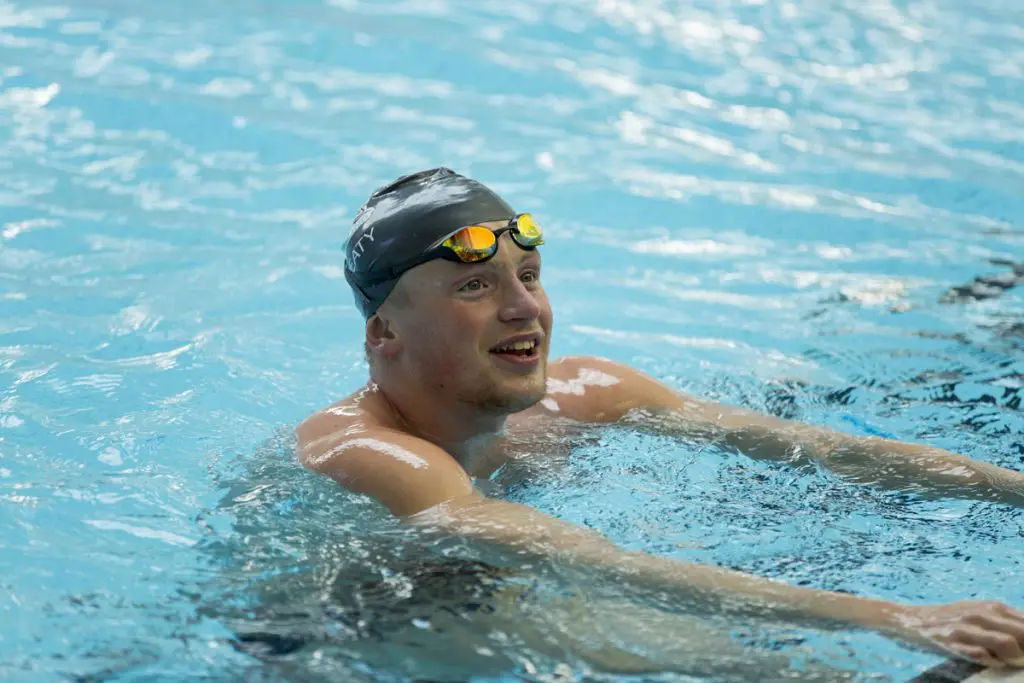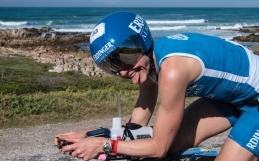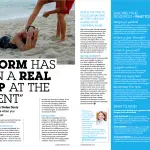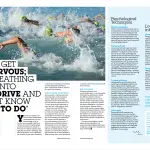It was brilliant. Did you see Adam Peaty’s world record of 57.10 in the 100-metre breaststroke at the European Championships? His result tantalisingly close to his ‘project 56’ goal: to swim sub 57 seconds.
Everyone can have their own ‘project 56’, that exciting goal that gets you up and out of the door, that nerve tingling thought of what might be or could happen if you achieve your dream. Working as a sport psychologist with athletes, I see and hear the dreams of many young swimmers, and the challenges they face with their own personal ‘project 56.’
The world of competitive swimming is tough. Many factors are dependent on times- PBs, selection, finals, rankings, medals, records, however is focusing on outcomes the best way forward? Back in the day, the 50-metres freestyle was ‘my event.’ I was fast. After 3 children and 25 years later in my early 40s, I decided to target swimming sub 30 seconds. I trained hard. I entered lots of races each time hopefully looking up at the scoreboard and saw 30.12, 30.19 or very annoyingly 30.02. I just couldn’t do it. A change of focus was called for.
Focusing on elusive times, rather than processes and techniques is where sport psychology can help. Placing focus and attention on processes means you can learn faster, become more successful, and be happier with the outcome. Listening to Peaty at the Europeans, his focus is now less on project 56 and more on enjoyment, the present and control over his processes. ‘Project 56’ will still be a driving force for Peaty, but he has an altered mind-set of focusing on effort and diligence, trusting that the rewards will come. Working with swimmers in the talent pathway, process thinking is a focus in sport psychology workshops. Encouraging yes, but in the heat of competition it isn’t always easy to do.
Self-talk, mental preparation and practice are three key things to help. Changing my own self-talk from ‘I must achieve a sub 30’ to ‘I want to swim sub 30,’ was less rigid, more flexible, giving me less pressure. Like Peaty, my focus turned to enjoyment ‘I’m lucky to be here swimming this event.’ This way of thinking allows you to enjoy and benefit more from whatever outcome does occur. If your happiness is contingent on your success, and if your success is contingent on a specific outcome, you are setting yourself up for a high likelihood of frustration and disappointment. Aim to avoid pursuing rewards directly, trust that they will come, work on the process. Practice.
I am sure that Peaty’s new mind-set will reap the rewards of a 56-second swim. I am happy, my change of mind-set gained me that elusive sub 30-second swim. Peaty is close, very, very close. This is exciting, as sometimes it’s not a physical reason holding you back, but a psychological one…. and that can be changed.
What’s your ‘project 56’ and how are you working on it?
Helen






